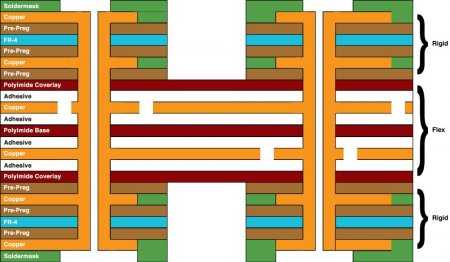- +86-755-23012705
- Building 3, Jinfeng Industrial Park, Fuyong Street, Baoan District, Shenzhen ,China
- [email protected]
The automotive industry has been experiencing unprecedented innovation over the past decade. With advancements in electric vehicles (EVs), autonomous driving, and connected cars, the demand for high-performance electronic systems is at an all-time high. At the heart of these systems lies Printed Circuit Board (PCB) technology, which serves as the foundation for electrical connectivity and functionality. Among various PCB solutions, rigid-flex technology is emerging as a cornerstone in addressing the complex demands of modern automotive applications.
Automotive electronics have evolved far beyond simple lighting and infotainment systems. Today, vehicles are equipped with advanced driver-assistance systems (ADAS), sensor networks, power management units, and communication modules. These systems require PCBs that are compact, lightweight, and capable of withstanding extreme environmental conditions such as high temperatures, vibrations, and humidity.
Rigid-flex PCBs are uniquely positioned to meet these requirements. By combining the durability of rigid boards with the flexibility of flex circuits, they offer a versatile solution for integrating multiple functions into a single board design. This capability is particularly valuable in space-constrained and high-performance automotive applications.

Rigid-flex PCBs integrate rigid and flexible substrates into a single, unified circuit. They consist of multiple layers of flexible circuit substrates attached to rigid boards. This hybrid design enables engineers to design circuits that can bend and fold into compact spaces while maintaining robust electrical connections.
Key features of rigid-flex PCBs include:
Rigid-flex PCBs are rapidly becoming a go-to choice for various automotive applications. Below are some key areas where they play a critical role:

The design and manufacturing of rigid-flex PCBs for automotive applications require meticulous planning. Key considerations include:
As the automotive industry continues to evolve, rigid-flex PCB technology is expected to witness further advancements:

Rigid-flex PCB technology is revolutionizing automotive electronics by offering unmatched reliability, compactness, and performance. As vehicles become more connected, autonomous, and energy-efficient, the role of rigid-flex PCBs will continue to expand. By addressing the challenges of modern automotive design, this technology is paving the way for a smarter and more sustainable future in the automotive industry.
Your Trusted Partner for PCB Success: XPCB LimitedLet XPCB Limited be your guide to PCB success. Our comprehensive PCB manufacturing, rapid prototyping, and turnkey PCBA services are designed to meet your needs with ease. Count on us to deliver reliable solutions that exceed your expectations. With XPCB Limited, your journey to PCB excellence starts here.






XPCB Limited is a premium PCB & PCBA manufacturer based in China.
We specialize in multilayer flexible circuits, rigid-flex PCB, HDI PCB, and Rogers PCB.
Quick-turn PCB prototyping is our specialty. Demanding project is our advantage.
Tel : +86-136-3163-3671
Fax : +86-755-2301 2705
Email : [email protected]
© 2024 - XPCB Limited All Right Reserve
